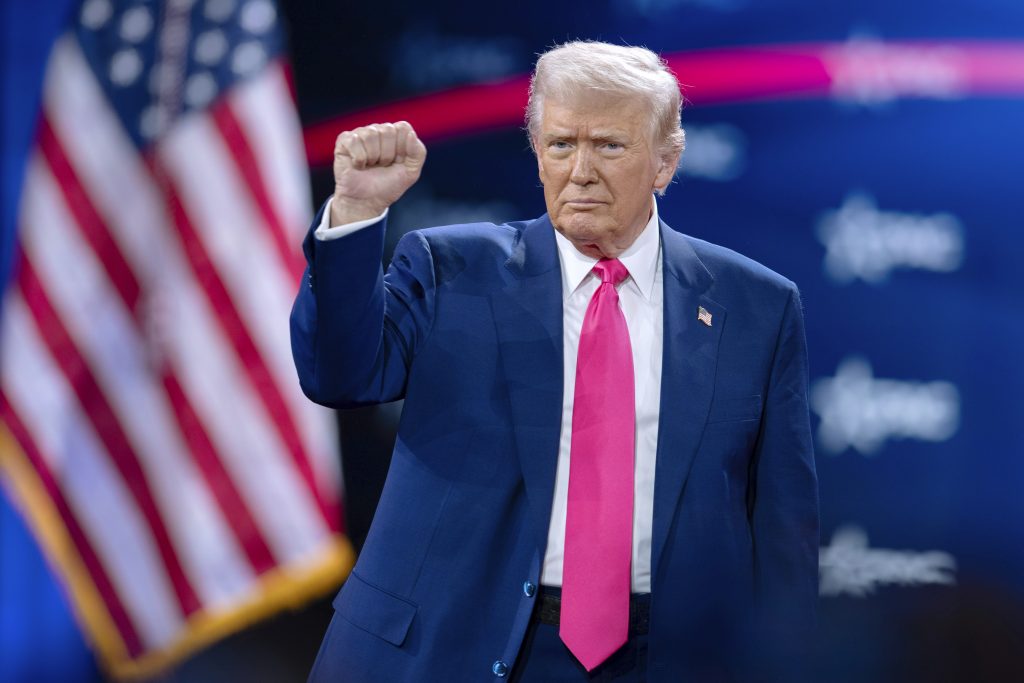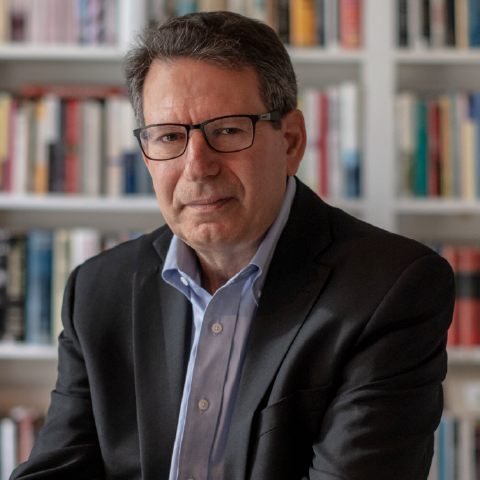In this interview with Dr. Robert Kaplan, a renowned geopolitical analyst and author, we discuss various global issues under the current leadership of Donald Trump. Kaplan shares his insights on Trump’s approach to foreign policy, his post-literate mindset, and the impact of his leadership on both the United States and the rest of the world. He also touches on Trump’s relationships with other global figures, such as Russian President Vladimir Putin and Turkish President Recep Tayyip Erdoğan, and the shifting dynamics in regions like Eastern Europe and the Eastern Mediterranean. Dr. Kaplan gives a comprehensive analysis of how these developments might shape the future of international relations and the global order.
Dr Kaplan will attend and participate in the 10th Delphi Economic Forum. The forum will take place in the iconic city of Delphi from April 9th to 12th, 2025.
What kind of messages do you think Trump wants to send to the U.S. and the rest of the world?
Dr. Kaplan: I think, in Trump’s mind, he believes America has displayed weakness over the past few years, and he intends to restore its strength. I don’t agree with that, but I think that’s what he believes. It’s important to recognize that Trump is post-literate. I don’t know how that translates into Greek, but I mean, I’m not saying he’s illiterate—he’s post-literate. In other words, he doesn’t read history, he hasn’t read history books, and he knows nothing about the history of the Western alliance, particularly the post-World War II period, the formation of NATO, and so on. These things don’t interest him at all. He lives in a world of social media and smartphones, where he can reinvent the present as if it emerges organically from the past. But Trump has no past, so he cares nothing about NATO or European allies. All he’s interested in is making deals. Now, great lawyers make deals all the time. James Baker, for example, was a great U.S. Secretary of State, a dealmaker, but he made deals within the context of history, America’s responsibilities in the world, and its ideals. Trump has none of that. He’s a post-literate dealmaker who believes the past doesn’t matter.
Do you think he means all the things he says–about the invasion of Greenland for instance, about Panama and now Gaza?
Dr. Kaplan: No, I don’t think he means it. He’s not disciplined when he talks, and neither are the people he has appointed. They say whatever comes to mind. The Washington elite, the bureaucratic elite, are well-trained, multilingual, politically moderate, and have worked in government all their lives. They know to be careful with their words. Trump and his people aren’t like that. When he talks about invading Greenland, what he probably means is that he expects the Danes to spend a lot more money on defending Greenland. Remember, Greenland’s eastern shore is very close to where Russian submarines and warships come out into the Atlantic, so he considers it strategic territory. You could make a fair argument that Denmark should spend more on its defense. But Denmark has been a loyal NATO ally of the U.S. since 1945, so you can work with the Danes to improve Greenland’s security without making threats about taking it over.

President Donald Trump gestures to the crowd at the Conservative Political Action Conference, CPAC, at the Gaylord National Resort & Convention Center, Saturday, Feb. 22, 2025, in Oxon Hill, Md. (AP Photo/Jose Luis Magana)
Can you understand what he’s doing with Ukraine? Is a deal going to materialize? The way he speaks about Volodymyr Zelensky and Russia really leaves an impression.
Dr. Kaplan: Trump doesn’t care about Ukraine. Again, as I said, he’s a dealmaker who just wants to make a deal with Russia, bypassing the Ukrainians. Since 2022, there have been hundreds of thousands of dead and wounded in the war in Ukraine—all because of Russia, all because of Putin’s invasion. Trump cares nothing about this; he just sees Russia as a place where he can make a deal. Some have compared what Trump is trying to do with Russia to Nixon’s détente with the Soviet Union in 1972. But that’s a false comparison. Nixon was a great statesman. In 1972, Brezhnev’s Russia wasn’t involved in a war where hundreds of thousands of people were being killed. The Nixon administration always consulted European allies; it was a very loyal NATO member, and the détente was limited to balancing against China. What Trump is doing is completely different.
Do you think this is a wake-up call for Europe? Will Trump ultimately make Europe stronger and independent from the United States?
Dr. Kaplan: I’m not sure. Europe has several problems. One is that it has never spent enough on defense, as a whole. I know Greece does, but that’s because Greece has to defend itself against Turkey. So, Greece’s defense budgets are somewhat misleading. Europe hasn’t spent nearly enough on defense against Russia, and one reason for this is that it’s not politically popular to increase defense spending. Countries like Portugal, Spain, and Italy aren’t really worried about Russian tanks, so it’s politically difficult to get the populations to agree to a dramatic defense budget increase. Even if they do spend more on defense, will their militaries be coordinated? Even with NATO, they’re not that well-coordinated. Europe has always needed a leader. The EU is economically powerful, but it has de facto leaders, like Germany and France. NATO requires the U.S. as a leader, and Trump doesn’t care about NATO. That’s why all your questions are really pointing to the end of the post-war order. The post-war order lasted 80 years, from 1945 to now, and that’s a long time in history. Especially during a time of such economic and technological change, which has altered national identities. We’re at the end of the post-war order, which consisted of three things: NATO, the U.S.-European alliance, and U.S. treaty relationships with Japan, South Korea, and other Asian countries, plus American foreign aid. Trump doesn’t care about NATO, and it seems he’s trying to destroy the U.S. Agency for International Development. In the Pacific, we’ll see—this tariff war with China is going to be very difficult for America’s Pacific allies to handle.
Given everything you’ve mentioned, are you worried there could be a third World War—something that seemed out of the question for the past 80 years? What does this new world order entail? Does it signal the end of democracy, even in the United States? Is the Constitution enough? Are the checks and balances enough?
Dr. Kaplan: I’m not there yet. I’m not at the point where I’d predict another World War. There are a lot of reasons against that. But I do think we’ll enter a more unstable world, one that is more morally ruthless and ambivalent. In a way, we’re entering a world where, as Thucydides wrote, “The strong do what they want, and the weak suffer what they must.” America has always been different. For a long time, it required ideals—it couldn’t just practice realpolitik. Since its founding, America had to be grounded in ideals. Trump is taking those ideals away.
Can Trump have a 3d term in the office?
Dr. Kaplan: Again, I’m not there yet. I’m not confident he’ll get a third term. Remember, he’s 78 or 79. How he feels in two or three years could be very different. Also, constitutionally, it’s very difficult to do a third term. The only president who did that was Franklin D. Roosevelt, and that was because of the Great Depression and wartime—unusual circumstances. But I’m not sure. I’m not confident in predicting another World War or a third term for Trump. I will say that America is great in large part because of its institutions, and Trump is launching a war on those institutions.
What about the Eastern Mediterranean? Will Turkey under Erdoğan gain more influence there now, especially with Syria and what’s happening?
Dr. Kaplan: Erdoğan has proven to be quite the survivor. A few years ago, we were writing him off, thinking he would lose the election. But he’s been in power almost a quarter-century now, since the early 2000s. I’m not sure. Turkey will have some advantages, and Trump likes strongmen, so he will be able to deal with Erdoğan. The relationship between Trump and Erdoğan will certainly be closer than the relationship between Biden and Erdoğan.



